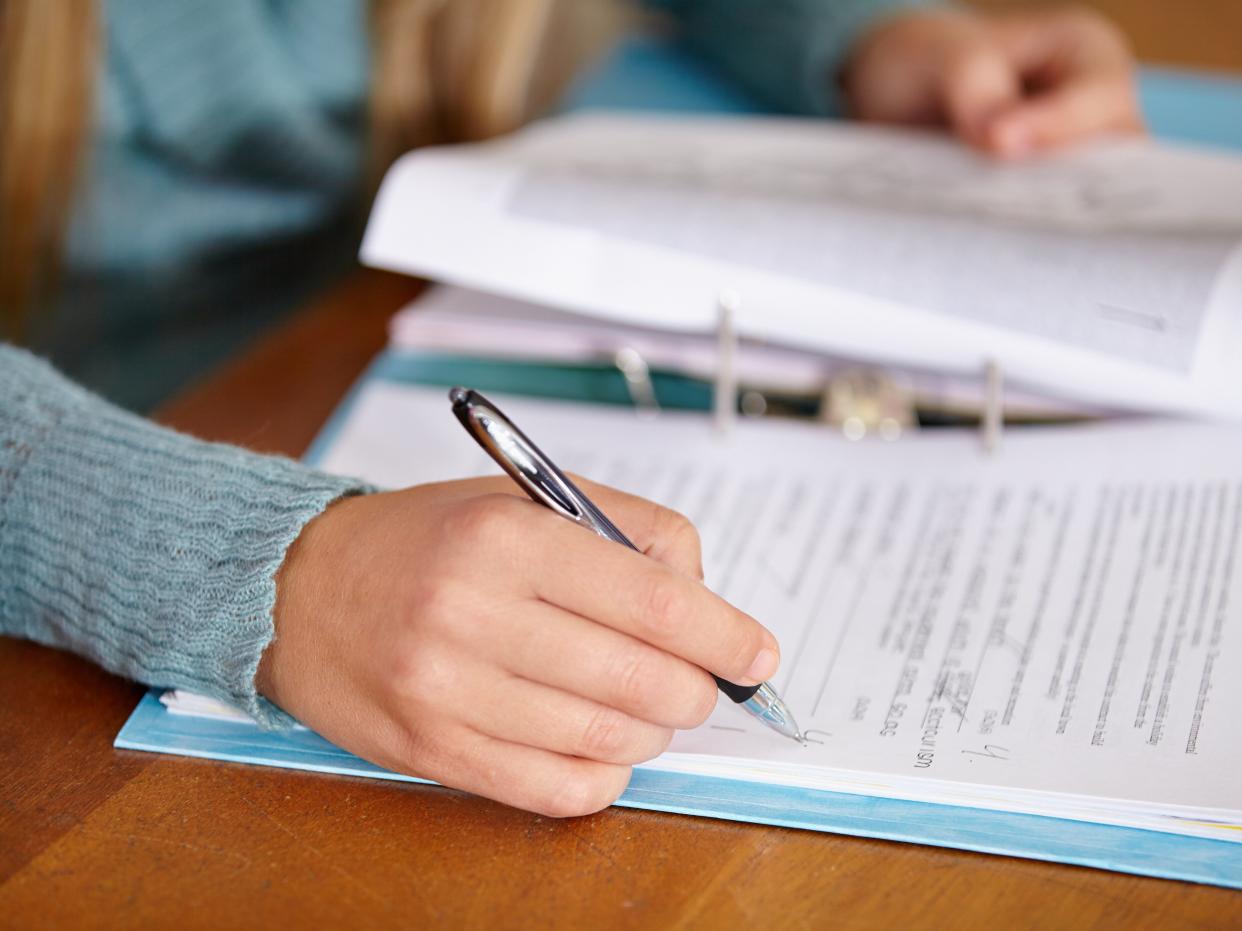Most schools to rely on exam-style papers in GCSE and A-level grading this year, survey suggests

Seven per cent of schools who replied to a union survey said they would base grades solely on papers taken in exam-style conditions this year
(Getty Images)Most schools will put the greatest emphasis on exam-style papers when coming up with GCSE and A-level grades this summer, according to a new survey.
Teacher judgements will be awarded this year after exams were cancelled for the second year in a row due to disruption caused by the coronavirus pandemic.
Under plans, teachers will have wide flexibility in how they come up with marks, including using questions provided by exam boards, work done in class, and homework.
A new survey by an education union found 53 per cent of its members who responded said they would use a mixture of exam-style and non-exam evidence to determine grades, with a greater weight placed on the exam-style papers.
Around one quarter of respondents said their judgements would use both types of evidence but give both the same emphasis when determing the students’ grades in the Association for School and College Leaders (ASCL) poll.
Seven per cent said they would solely base results on papers set in exam-style conditions in classrooms or exam halls, while around 6 per cent said they would just use non-exam evidence for grades, according to the survey of around 520 schools.
Ministers have insisted they are putting “trust” in teachers this year after oficial GCSE and A-level exams were cancelled in light of the disruption from the pandemic, which has kept children out of school in lockdowns and periods of self-isolation.
It comes after last year’s system in England for grading in the absence of exams sparked controversy - and an eventual U-turn - after an algorithm downgraded tens of thousands of marks in moderation.
But teachers have raised doubts about the fairness of this year’s system, given the flexibility for schools to take different approaches.
The education select committee has also warned students could face a “Wild West” approach to grading this summer.
Geoff Barton from ASCL, whose union ran the poll of members in mid-April, said schools have used their “best judgement” to come up with what “represents the fairest approach” for their students this year.
“We should not be surprised about the variability in approaches given that there are very few parameters about how this should be done and a wide range of differing experiences over the past year,” the union’s general secretary said.
“We argued for this flexibility so that schools and colleges were free to use their judgement about what best suited their context and we are not going to criticise it now.”
Mr Barton added: “We understand that the public may be confused by the fact that, on one hand, the government cancelled public exams, and on the other hand, many schools will be using exam-style questions and papers to assess students.”
But he said there are “sound reasons” for this and schools will formulate assessments “in line with their knowledge of the content their students have been able to cover during the pandemic”.
The government has said students should only been assessed on what they have been taught given the disruption to their education.
Schools will be given guidance to make sure their assessment process is “fair” and exam boards will do checks on schools using a representative sample, as well as through more targeted checks using risk-based criteria, according to the government.
Read More
Watch live as John Kerry speaks at White House news briefing
Early years settings ‘neglected’ by Tories over past decade, Labour says
Leading UK universities vow to protect freedom of speech on campus

